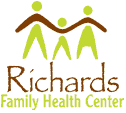Cancer
Vitamin D Benefits
The recent news reports regarding Vitamin D are very interesting. Prior to this, the media has hyped the notion that vitamin D is “toxic” and shouldn’t be taken in high doses. However, Robbins, et al, Pathologic Basis of Disease clearly states that vitamin D toxicity begins at 1,000,000 IUs per day. The U.S. standards for vitamin D (400 I.U.s daily) are ridiculously low, and are based upon the minimum value that was shown to prevent rickets, a serious deficiency disease, causing softening and deformity of the skeleton in children. Now, cancer specialists are changing these standards. The new recommended dose to maintain health is 1,000 IUs (25 mg) per day. That’s 10 8-oz. glasses of milk daily! Obviously, a supplement is much simpler, particularly for those of us who are either allergic to milk or lactose intolerant. Some of the benefits of natural Vitamin D include:
- protection from cancer of the colon, breast, ovarian and other cancers;
- lowering insulin resistance, which is one of the major factors leading to heart disease;
- repair of lung tissue thus preventing lung disease;
- protection against high blood pressure by regulating serum calcium levels;
- and regulation of the immune system, which has an impact on auto-immune diseases such as diabetes and multiple sclerosis.
- All of this is in addition to the prevention of rickets in children and osteoporosis in the elderly.
There is an interesting article in The Independent, a British publication. The article points out that the campaign to reduce skin cancer by using sun blockers has unexpected side effects — a deficiency in vitamin D which contributes to increased rates of some cancers and osteoporosis. This is particularly a problem in parts of the world where there is little sunshine in the winter months. Researchers at the University of San Diego in California, after reviewing 63 scientific papers on the link between vitamin D3 and cancer published between 1966 and 2004, concluded that people living in the northeastern US, where there is less sun, and African Americans with darker skin were more likely to be vitamin D deficient. They found a correlation with higher cancer rates in these populations, as much as a 50% increase. The reason scientists are paying attention is that the difference is so huge, statistically. But, of course, the media is now featuring other “experts” who maintain that anything over 2,000 IUs of vitamin D per day can damage the kidneys and liver. This is, of course, based upon the side effects of synthetic vitamin D, which is not what the research is recommending. The recommendation is for natural vitamin D, also known as D-3, which is the form I have been using for years. By the way, synthetic vitamin D (D2) is no longer listed in the Physicians’ Desk Reference. Too toxic — I suspect. The problem with media coverage is that almost all reporters are ignorant of the distinctions I discuss in this article. Reporters simply look for controversy; there is no such thing any more as factual, scientific reporting without finding someone — no matter what their axe to grind — to oppose the information being presented. It’s exhausting, don’t you think? While we haven’t known all of this information, the alternative health care community has long stated that the American population is relatively vitamin D deficient. If you have had a personalized nutritional program prepared by me using your blood chemistry, you are aware that I often prescribe relatively “high” doses of vitamin D (15,000 to 45,000 IUs per day), with no adverse effects; I know, because I’ve monitored these higher doses carefully. So, we’re again finding that optimum nutrition based on your blood profile provides more benefits than you might expect.
Does this apply to you? If so, see our information on Consultations.
[TOP]
© 2011 Richards Family Health Center. This site or any part may not be reproduced without the written consent of Richards Family Health Center. N Rowan Richards, DC, DABCI, FIACA at 242 South Glendora CA 91741. 626 963 1678. email:richardsfhc@richardsfamilyhealth.com. This site is Not intended to dispense health advice or serve as a substitute for actual patient contact with a qualified healthcare provider. Our sole purpose is one of education. It is our expectation that our site can educate our visitors about the efficacy of some healthcare treatments that exist as an alternative to conventional medical wisdom.
PRIVACY POLICY: Richards Family Health Center takes your privacy very seriously. Be assured that we do not sell or rent your contact information to anyone.


